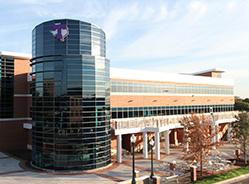Communications department to host Texan Debate
March 24, 2017
Students at Tarleton State University will be given the opportunity to discuss various controversial topics with the university’s implementation of a compelling new program called Texan Debate. According to instructor and director of Texan Debate, Dr. Del Richey, the Parliamentary Debate program is loosely modeled after the University of California – Chico’s Great Debate and aims to give students the ability to “discuss controversial topics with organization, analysis, civility and decorum.”
The first Texan Debate will be held Monday, April 17, 2017 and will allow students enrolled in COMM 1311, 1315 and 2302 to talk through many facets of the dissension surrounding Concealed Carry legislation on college campuses. These students will be asked to participate by attending and/or serving on one of the eight debate teams (with no previous debate experience necessary).
On April 17, four separate debates will be held on this topic. The first three debates will be held in the O.A. Grant Lecture Halls at 1 p.m., 2 p.m. and 3 p.m. The final debate will take place at 7 p.m. in the Clyde H. Wells Fine Arts Auditorium.
Texan Debate has the potential to offer students an invaluable outlet for civil, structured discussion regarding many of these issues. Richey stated that the debate topics will be different each semester, keeping the topics “relevant” and “important” to the students participating.
Concealed Carry legislation has been a hot topic for debate on Tarleton’s campus since before the passage of Senate Bill
11 in 2016, and many students have viewpoints regarding the issue that are diametrically opposed.
Richey assented that the divisive political climate could affect the Texan Debate, stating that “the more conservative a person is politically, the more they want access to weapons.” According to Richey, there are very few students who were initially inclined to argue against Concealed Carry.
At Texan Debate, many participating COMM students will be asked to argue from a political perspective that is different from their own, which could be potentially very difficult for students due to their own emotions and partisanship.
Richey said, “Some of the students get really emotional about this, which is why I’m having them debate on the other side. Some of them are trying to go to law school, and they need to be able to see issues analytically.”
According to Richey, it is immensely difficult, at times, for peers to have a conversation regarding an issue that they are passionate about when they do not see eye to eye. There is often a legitimate fear of being judged personally for disagreeing with someone, and things can get heated rather quickly when the issue on the table is important to the parties involved in the discussion.
A program like this, Richey said, teaches students to view topics “analytically, not emotionally.” This skill is vital for students hoping to have a successful career in politics, communication and a host of other fields.



